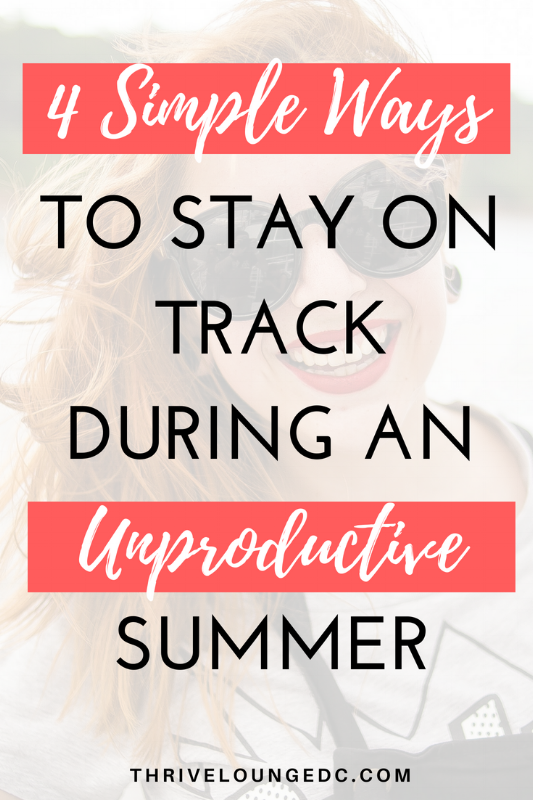This post may contain affiliate links. Please read my disclosure for more info.
GOALS.
I’ve always had a problem with “SMART” goals. The concept just seemed too easy, too unfinished. Like… I set a goal, but what’s next? There are millions of people who set goals every year that do not finish them. I’m sure their goals are smart.
But why aren’t they finishing?
Goals are not really the end of the journey. They’re just the destination. Once you figure out your destination, you have to figure out:
What you budget is for the trip
When you’ll make time in your schedule to take this trip.
Whether you’re going to get there by bus, train or plane.
Who is going with you
How long it will take
And as you go, you’ll likely be checking your progress with Google Maps the entire trip (Am I right?)
To truly start accomplishing your goals, you must think about the end goal as a destination. And then begin the journey, step by step, to get from where you are now to where you want to be in your life.
My Destination
I started paying off my student loan debt three years ago. I had $42,000 of total debt from my undergraduate and graduate degrees. Finally, I got my first “real job” and couldn’t even enjoy my income because I felt crushed by my student loan debt.
Related Content: How to Guarantee Grad School is Worth your Time and Money
I felt #defeated, every time I made my minimum payment and it wasn’t even enough to cover the interest on my loan. (Facepalm).
That's when I decided that I had to start aggressively paying off my student loan debt. I set the SMART goal first, but then I also had to use every tool in the goal setting garage, not just toolbox, in order to make this big dream a #reality.
Here’s how you really build the habits to accomplish your largest goals:
Start with setting measurable goals.
This means setting your goal in way that you can measure whether or not you’ve achieved it. Make sure you have an exact number associated with your goal and a date you want to complete it by.
For example, here are two ways you can set a goal to tackle your debt:
Example #1: "I'll pay off $42K of student loan debt by December 31st of this year."
Example #2: "Take control of my debt."
The first example outlines exactly how much you want to pay and when you want to complete it.
In the second example, you're setting a vague goal that's difficult to track. How do you know when you’ve taken control of your debt? Is it when you’ve started making the minimum payments? Is it when you’re doubling the minimum? Is it when you’ve deferred that payment again to tackle your other priorities?
If you haven’t set a CLEAR goal in the beginning, it’ll be impossible to measure your success.
Set Milestones for your goals.
Since I knew I wanted to pay off $37K in my first year, I set a monthly number that I would have to pay in order to reach that goal.
$37K/12 months = $3K per month
Once I knew how much I needed to reach my goal, it was really easy to look at my budget and plan how I could make it happen. Also, I could easily track whether I was on track to reach my goal on a monthly basis.
Use a goal tracker.
I am a VERY visual person so I like to see things on paper. When you're working towards a long term goal, (like paying off a ton of debt) it can get boring and you almost start to wonder if you're actually making any progress.
I created a chart where I could color in one square for every $1000 of debt I paid off. If you like to track electronically, there are lots of good apps where you can track your progress on your phone.
Slowly, but surely, I started to fill my chart with colorful boxes. I hung it on the wall so I could see how much progress I had made and how much I still had left.
Use an accountability partner.
I had a friend that I'd call monthly to make sure I was paying my debt off in a timely manner.
We'd have a 30 minute call once a month and talk about how much debt we'd paid off, how much we had left and what the next steps would be. This helped me build the habit and keep the habit of paying off my debt, right from the beginning.
A Note on Habits
All of these goal-crushing tools help you build the right habits so that you can take the right actions every day. Your goals are the result of taking the right actions over and over again until you reach your destination.
If you can master your habits, you can reach any goal you want.
It hasn't been a short journey, but I've made great progress toward this goal over the last two years. And by the end of this year, I’m proud to be able to say I’m student loan debt free!
What will your next SMART goal be?
Want To Start Planning Your Vision Board Party?
Download the FREE vision board party planning checklist.
Craft your inspiring vision board workshop talk with our FREE High Impact Storytelling Journal Prompts.
Plan, promote & host your first (or next) professional & profitable vision board workshop with our signature course, Sold Out Vision Board Parties.
ABOUT THE AUTHOR
Cyrene is a fun and accomplished workshop facilitator, learning and development guru and Human Resources professional. Being at the helm of Thrive Lounge has been a long-time dream. Through vision board workshops she plans to accomplish two-way learning. Sharing her vast years of knowledge to motivate and encourage others; while simultaneously getting the reward of great energy, ideas and questions to ponder back from each group. A super win-win. Please join our Thrive Lounge community so you too can benefit!

![Where To Buy Magazines For Your Vision Board Party [updated 2023]](https://images.squarespace-cdn.com/content/v1/57d0d23e579fb3d89aa6c53e/1530138639042-H0LBZSZTR3JYBWKCYKLN/StockSnap_5FGEKJTGDV.jpg)









